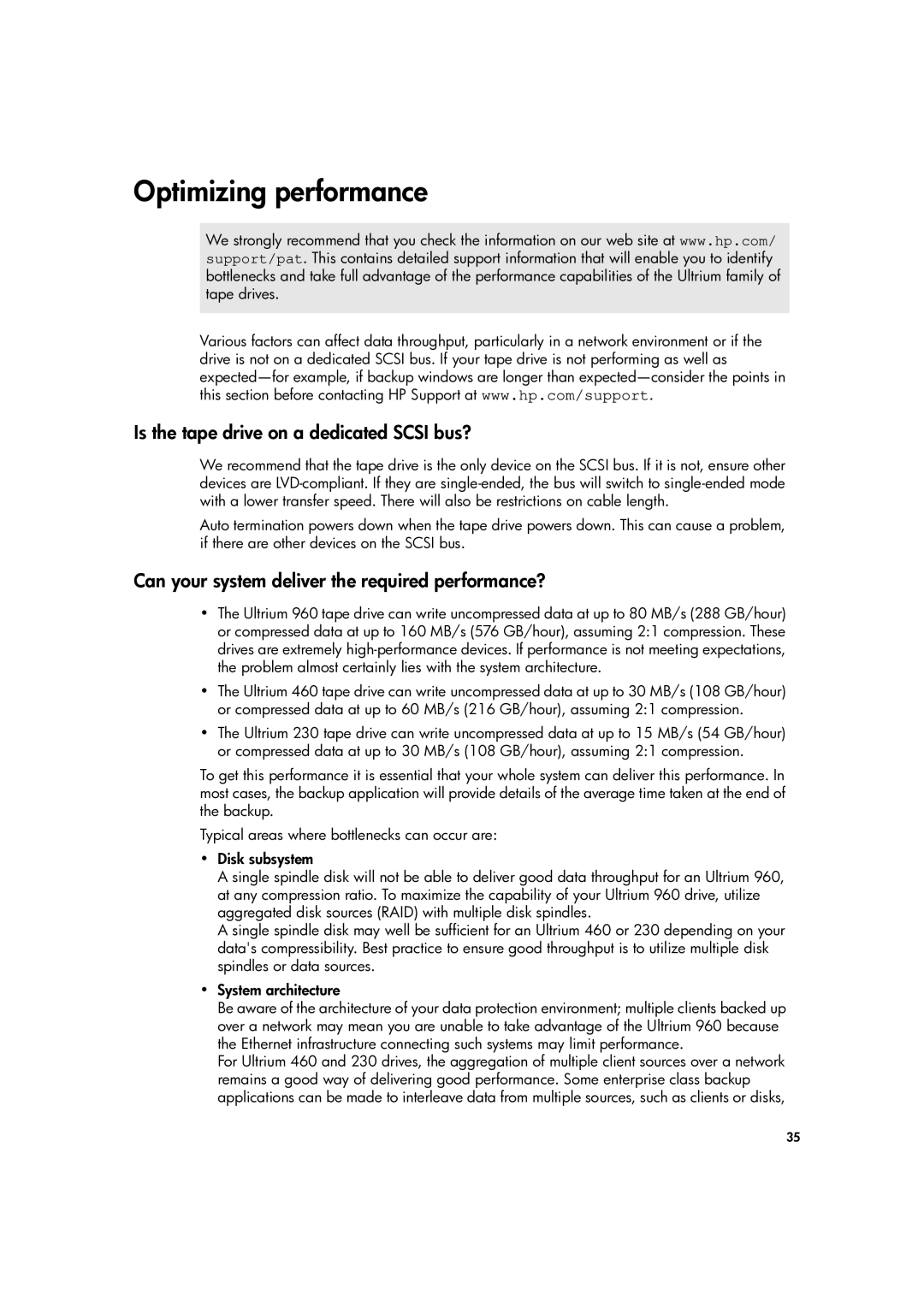
Optimizing performance
We strongly recommend that you check the information on our web site at www.hp.com/ support/pat. This contains detailed support information that will enable you to identify bottlenecks and take full advantage of the performance capabilities of the Ultrium family of tape drives.
Various factors can affect data throughput, particularly in a network environment or if the drive is not on a dedicated SCSI bus. If your tape drive is not performing as well as
Is the tape drive on a dedicated SCSI bus?
We recommend that the tape drive is the only device on the SCSI bus. If it is not, ensure other devices are
Auto termination powers down when the tape drive powers down. This can cause a problem, if there are other devices on the SCSI bus.
Can your system deliver the required performance?
•The Ultrium 960 tape drive can write uncompressed data at up to 80 MB/s (288 GB/hour) or compressed data at up to 160 MB/s (576 GB/hour), assuming 2:1 compression. These drives are extremely
•The Ultrium 460 tape drive can write uncompressed data at up to 30 MB/s (108 GB/hour) or compressed data at up to 60 MB/s (216 GB/hour), assuming 2:1 compression.
•The Ultrium 230 tape drive can write uncompressed data at up to 15 MB/s (54 GB/hour) or compressed data at up to 30 MB/s (108 GB/hour), assuming 2:1 compression.
To get this performance it is essential that your whole system can deliver this performance. In most cases, the backup application will provide details of the average time taken at the end of the backup.
Typical areas where bottlenecks can occur are:
•Disk subsystem
A single spindle disk will not be able to deliver good data throughput for an Ultrium 960, at any compression ratio. To maximize the capability of your Ultrium 960 drive, utilize aggregated disk sources (RAID) with multiple disk spindles.
A single spindle disk may well be sufficient for an Ultrium 460 or 230 depending on your data's compressibility. Best practice to ensure good throughput is to utilize multiple disk spindles or data sources.
•System architecture
Be aware of the architecture of your data protection environment; multiple clients backed up over a network may mean you are unable to take advantage of the Ultrium 960 because the Ethernet infrastructure connecting such systems may limit performance.
For Ultrium 460 and 230 drives, the aggregation of multiple client sources over a network remains a good way of delivering good performance. Some enterprise class backup applications can be made to interleave data from multiple sources, such as clients or disks,
35
